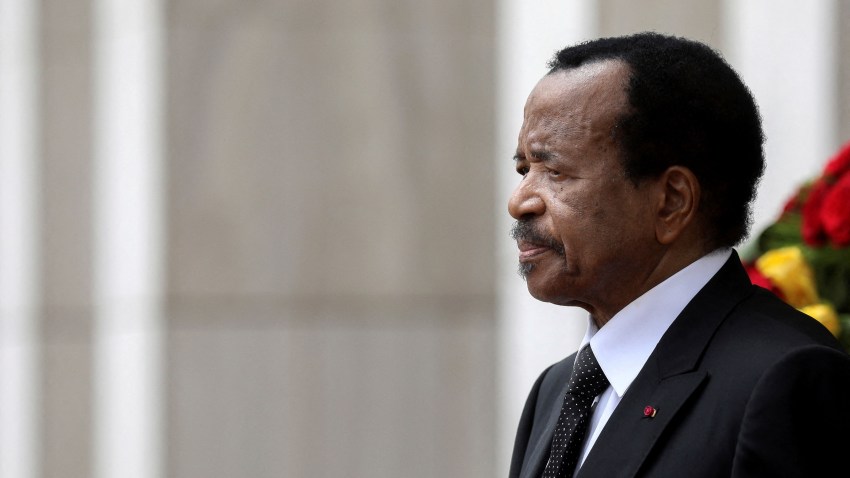In a world facing waves of rapid-fire crises, the ability of some rulers to keep a tight grip on their societies for decades on end can seem a remarkable feat. While some authoritarian regimes in states such as Russia under President Vladimir Putin try to sustain a sense of dynamism through an aggressive foreign policy, others try to present themselves as the only possible guardians of stability. And of all the autocrats who have managed to secure their survival by convincing enough people they are the only viable figures able to ensure tranquility in a volatile region, Cameroonian President Paul Biya has arguably proven the most skilled at playing a complex game. Yet, as the 89-year-old autocrat enters his 40th year as Cameroon’s president, the growing structural pressures building up around him indicate how dangerously misguided it is to rely on authoritarian systems to sustain political stability.
Born in 1933, Biya was educated in the French late-colonial system that shaped the intellectual outlook of an entire generation of post-independence leaders in Central and West Africa. While studying at the Sorbonne in Paris in the late 1950s, Biya did not embrace the militancy that fueled the brutal anti-colonial war in Cameroon during this period. This lack of radicalism combined with Biya’s administrative skills made him an ideal figure to lead the civil service in a post-independence political order that still relied heavily on French support. The conflict-laden aftermath of the unification of French-ruled Cameroon with the smaller Western portion administered by the British in the 1960s helped Biya expand his influence, as he worked to coopt a frustrated Anglophone elite into shared state structures.
Biya’s rise to the presidency in 1982 reflected his mastery of a state bureaucracy that he had formed. Despite challenges to his grip on power that almost brought him down in elections in the early 1990s, the extensive system of patronage that Biya has built up through a corrupt intertwining of business and state networks has given him the leverage to manipulate elections and neutralize political threats. Over the decades, the dominance of the ruling RDPC party under Biya’s control has become so all-encompassing that any ambitious figure in Cameroonian politics, business, sports or culture needs to have a working relationship with its functionaries in order to get ahead.

